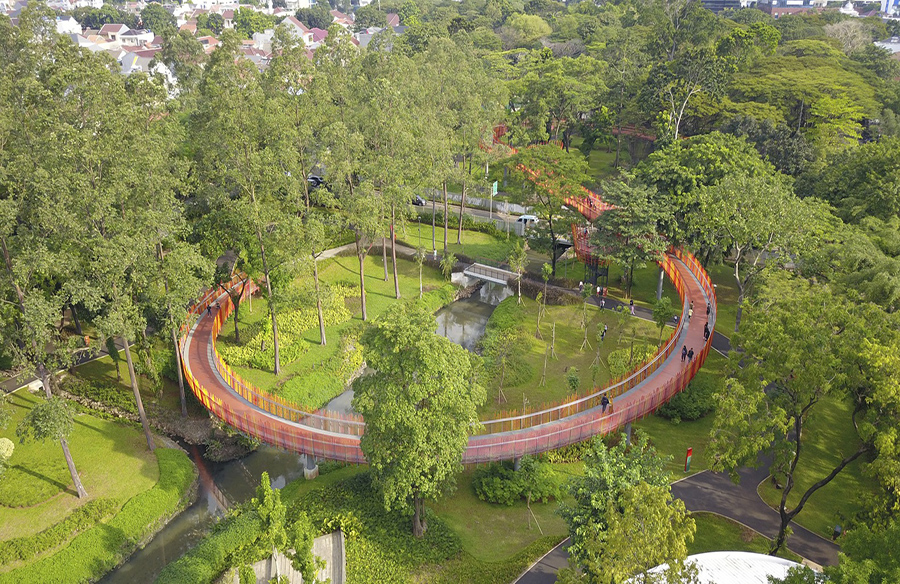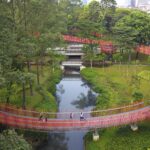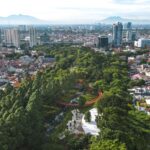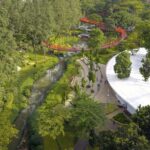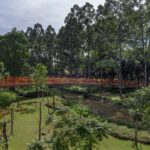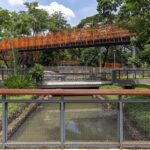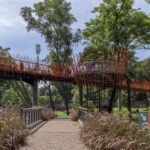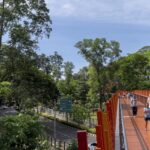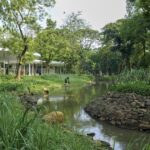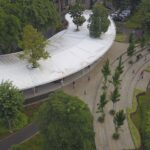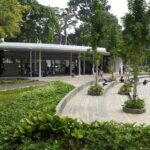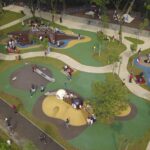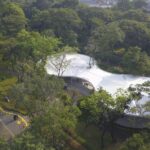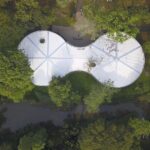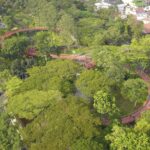In Jakarta, Indonesia, the revitalization of Tebet Eco Park stands as a testament to the transformative power of landscape architecture and urban planning. Led by SIURA Studio, this project demonstrates how a once deteriorating public park can be rejuvenated into a vibrant community space with a strong focus on ecological restoration and social inclusion.
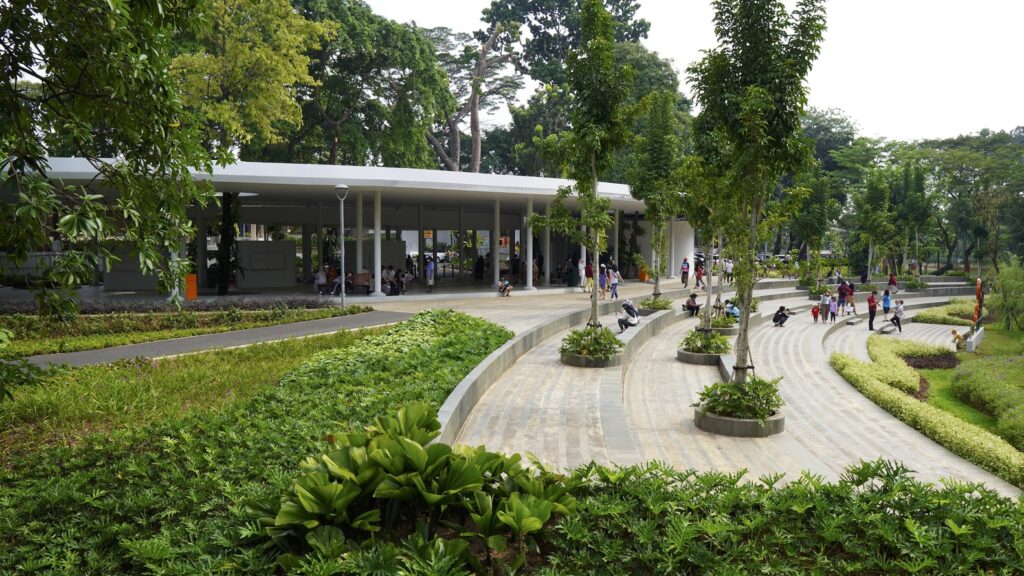
Embracing Ecological Regeneration
Tebet Eco Park, spanning 7.3 hectares, underwent a remarkable transformation within just 15 months. The project aimed to address various challenges such as environmental degradation, flooding, and social issues. By adopting an ecological landscape design approach, the park’s ecology was revitalized, with a particular emphasis on conserving trees and enhancing blue-green infrastructure.
Restoring Waterways
One of the key interventions involved the renaturalization of the park’s waterway, which had previously been heavily polluted and prone to flooding. Through nature-based solutions, such as riparian vegetation and meandering waterways, the once polluted canal was transformed into a thriving ecosystem. This revitalized waterway not only improves water quality but also enhances the park’s resilience to flooding.
Sustainable Construction Practices
The project prioritized sustainability by minimizing landscape interventions and reusing existing materials. Over 1,500 trees were surveyed and preserved, while excavated materials were repurposed for park construction. Unhealthy trees were either relocated or upcycled into park furniture, promoting resource efficiency and minimizing waste.
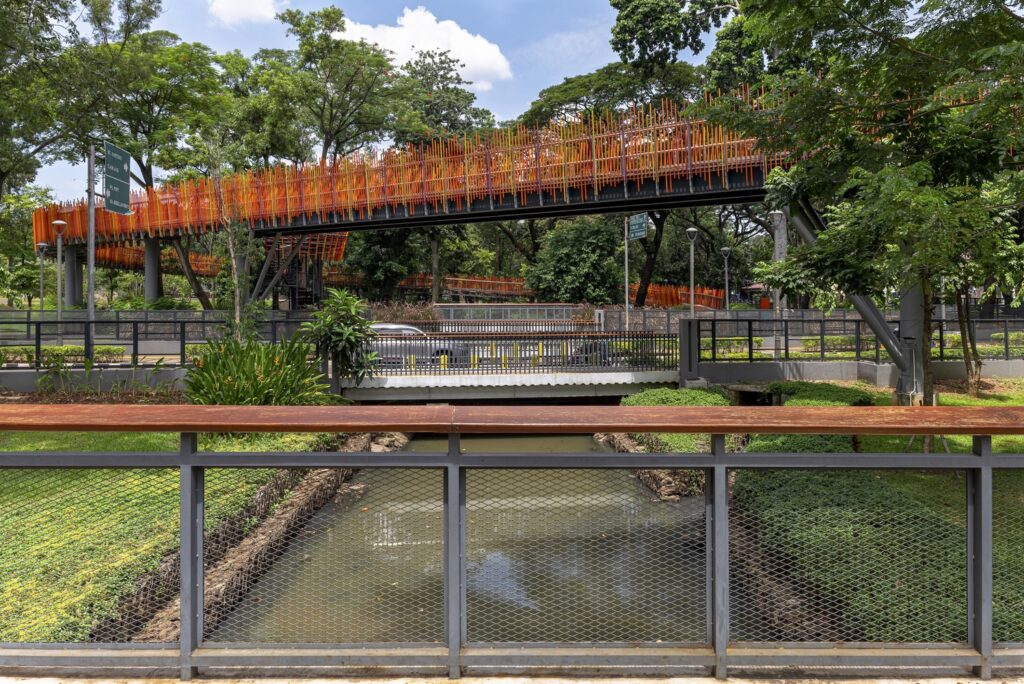
Fostering Community Engagement
A collaborative approach involving local communities and stakeholders was integral to the project’s success. Tebet Eco Park now serves as a hub for recreational, educational, and social activities, accessible to people of all ages and backgrounds. This inclusive design approach fosters social well-being and strengthens community ties.
Enhancing Connectivity
To improve accessibility, a pedestrian bridge was constructed to connect previously segregated areas of the park. Designed with minimal environmental impact in mind, the bridge encourages park users to explore the entire space while preserving existing trees and habitats.
A Model of Urban Sustainability
The completion of Tebet Eco Park represents a significant milestone in Jakarta’s urban development journey. By seamlessly integrating ecological restoration with recreational spaces, the park promotes equity and harmony between humans and nature. It serves as a blueprint for future public park design, demonstrating the potential for sustainable urban regeneration and community empowerment.


